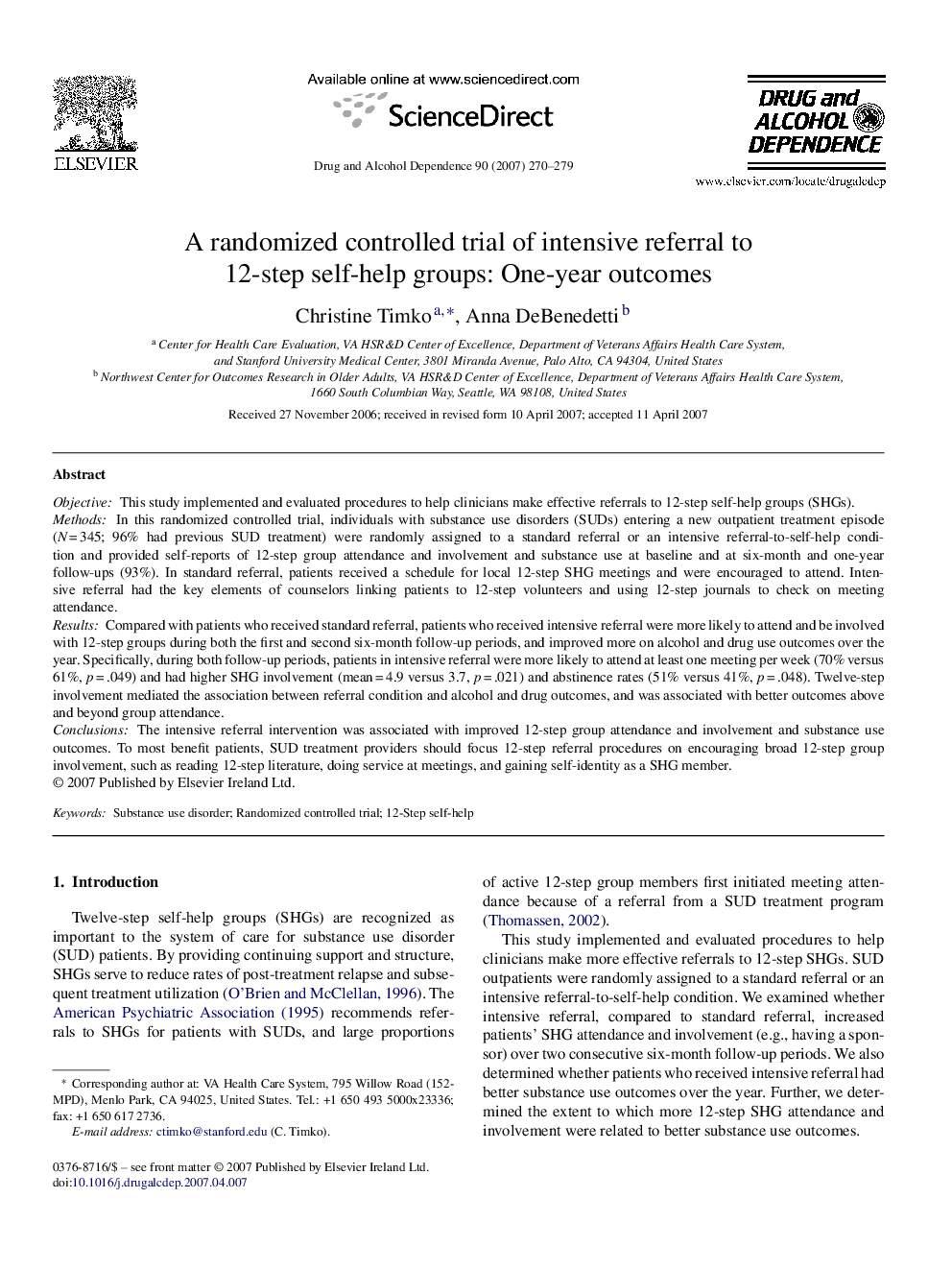| کد مقاله | کد نشریه | سال انتشار | مقاله انگلیسی | نسخه تمام متن |
|---|---|---|---|---|
| 1071723 | 1486202 | 2007 | 10 صفحه PDF | دانلود رایگان |

ObjectiveThis study implemented and evaluated procedures to help clinicians make effective referrals to 12-step self-help groups (SHGs).MethodsIn this randomized controlled trial, individuals with substance use disorders (SUDs) entering a new outpatient treatment episode (N = 345; 96% had previous SUD treatment) were randomly assigned to a standard referral or an intensive referral-to-self-help condition and provided self-reports of 12-step group attendance and involvement and substance use at baseline and at six-month and one-year follow-ups (93%). In standard referral, patients received a schedule for local 12-step SHG meetings and were encouraged to attend. Intensive referral had the key elements of counselors linking patients to 12-step volunteers and using 12-step journals to check on meeting attendance.ResultsCompared with patients who received standard referral, patients who received intensive referral were more likely to attend and be involved with 12-step groups during both the first and second six-month follow-up periods, and improved more on alcohol and drug use outcomes over the year. Specifically, during both follow-up periods, patients in intensive referral were more likely to attend at least one meeting per week (70% versus 61%, p = .049) and had higher SHG involvement (mean = 4.9 versus 3.7, p = .021) and abstinence rates (51% versus 41%, p = .048). Twelve-step involvement mediated the association between referral condition and alcohol and drug outcomes, and was associated with better outcomes above and beyond group attendance.ConclusionsThe intensive referral intervention was associated with improved 12-step group attendance and involvement and substance use outcomes. To most benefit patients, SUD treatment providers should focus 12-step referral procedures on encouraging broad 12-step group involvement, such as reading 12-step literature, doing service at meetings, and gaining self-identity as a SHG member.
Journal: Drug and Alcohol Dependence - Volume 90, Issues 2–3, 8 October 2007, Pages 270–279